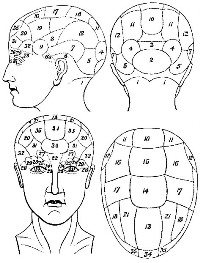Welcome to the Wakefield Doctrine (the theory of clarks, scotts and rogers)
A little ‘light reading’ for this, the most lightest of Workweek Days…. Friday (courtesy of the gang down at the Wakefield Doctrine)
The question is this:
- can a person become popular without the talent/capacity/capability to effectively self-promote themselves
- (“...what does this have to do with personality types, Friday and, since we’re asking extra credit questions, what the hell is ‘the everything Rule'”)
Great question!
Allow me to answer the Second (and totally un-authorized) question first: the ‘everything Rule’ (short for: ‘everyone does everything, at one time or another’) is a reminder, to those of us who would use the Wakefield Doctrine as intended, (and not as way to figure out our kids, get our husbands to stop with the constant….or get lucky in study hall), to remember that the Doctrine is predicated on the notion that we all live in one of three worldviews. For example: I grew up (and developed my skills and strategies and interpersonal coping mechanisms) in the worldview of ‘the Outsider’, as a result, if you were to observe me today at work, you would come to the conclusion: ‘hey! he’s got one of those clark personality types that the Doctrine warned us about.’ One of the cool things about the Doctrine, is that we do not need to know about traits and tastes, habits, hobbies and interests in order to assign a personality type. Instead, we observe a person’s everyday behavior and infer how that person is ‘relating themselves to the world around them’.
The goal is to determine which of the three worldviews one is living in, (the Outsider/clark or the Predator/scott or the Herd Member/roger), once I know this, I know more about you than you know about yourself. All without a single survey question! Cool, non?
….anyway, the ‘everything Rule’ simply states that, while we all live in the same common world, i.e. the world of Nightly News with Brian Williams/the world of 19 year old Checkout girls who look at you and even answer a direct question without ever, for a second, actually seeing you/the world of surly car mechanics/the world of oppressively kind in-laws/the world of hopes that exceed any possibility of being realized yet cannot be let go of because what would your life be then/the world of the internet and websites that are flashy and full of banal, insipid advice on how to live life without the slightest hint of an original idea to distinguish it from countless other popular websites… our personal experience is…well, personal. Of course, this being the Doctrine, we take that common sense observation and say that the very reality that I live out today in is different, that although we clarks live in the same world with scotts and have the same things happen to us as do rogers, how these things ‘manifest’ is different for each of us.
manifest: (ex.) Christine and Lizzi and Kristi are riding in a car one night after going to see a really great show. Suddenly the highway behind them is filled with flashing blue light… (common enough experience, right?) . The experience that unfolds for each of our three friends is going to be different. No, really. How this encounter manifests is distinguishably different for each of them, from start to finish. The experience will manifest according to the character and nature of their respective worldviews.
damn! off on a tangent again.
popularity:
- for clarks it does not exist, it is knowable and observable, but it does not exist
- for scotts is a fact of life, it is useable and enjoyable, but, in the final analysis, of no account
- for rogers it is necessary, essential and expected…like saying to a person, ‘hey beautiful child you have there, isn’t the gravitational attraction of the Earth great today?’








